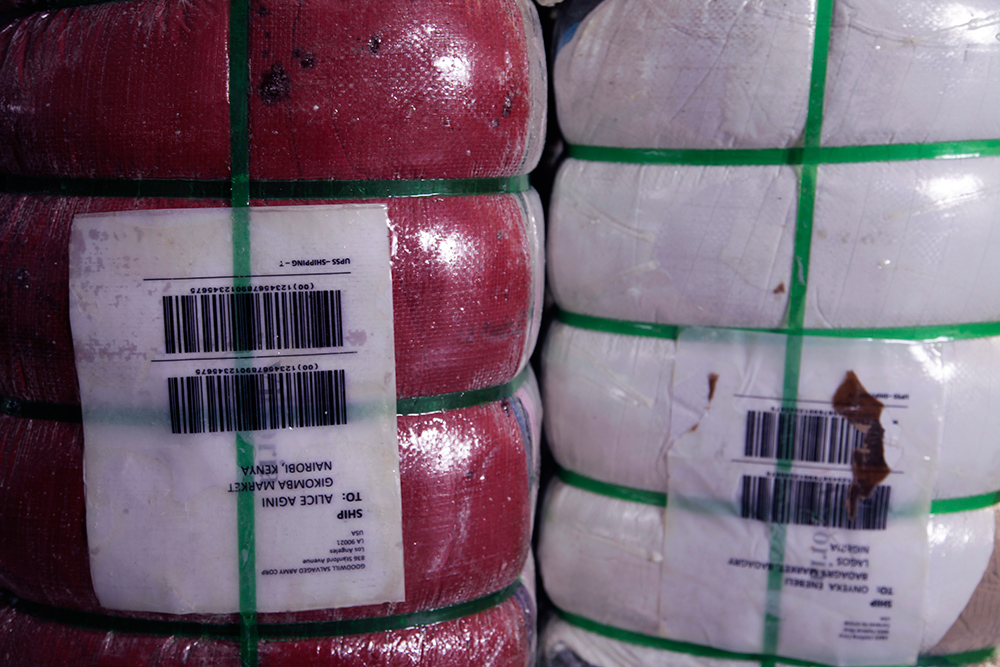 Frozen Economy detail, work by Doundi Victoriana, variable dimension 2016 |
Doundi Victoriana(b. 1963, Lagos, Nigeria)Mixed media and installation artist Doundi Victoriana lives and works in Lagos, Nigeria. She holds a BA and MFA from the University of Nigeria, Nsukka, where she worked under the internationally celebrated artist El Anatsui. She has won the Commonwealth Arts and Crafts Award and shown her work in solo exhibitions in Lagos, Dakar, Bamako and Liverpool and in many international group exhibitions, including at the National Museum of African Art, Smithsonian Institution in Washington, DC. Before studying art, Victoriana trained as a tailor and fashion designer. Her practical knowledge of textiles and design continues to inform her mixed media installations. By repurposing second-hand material and clothing into unique sculptural installations and riffs on indigenous Nigerian modes of dress, the artist confronts notions of "authenticity," revealing the deep cross-cultural histories that have been embedded within the textile trade for centuries. In her work, Victoriana investigates the capacity for clothing to shape identity and the impact produced by the tacit histories and narratives woven into everyday materials. Frozen Economy, 2016Victoriana’s textile installations use second-hand clothing to draw attention to its trade on the world market. Second-hand clothing is shipped from the developed to the developing world under the auspices of charity, but really sold at a profit. Dipped in resin, these bales of second-hand clothing are rendered obsolete as vehicles for capital, and functionless as garments for wear. 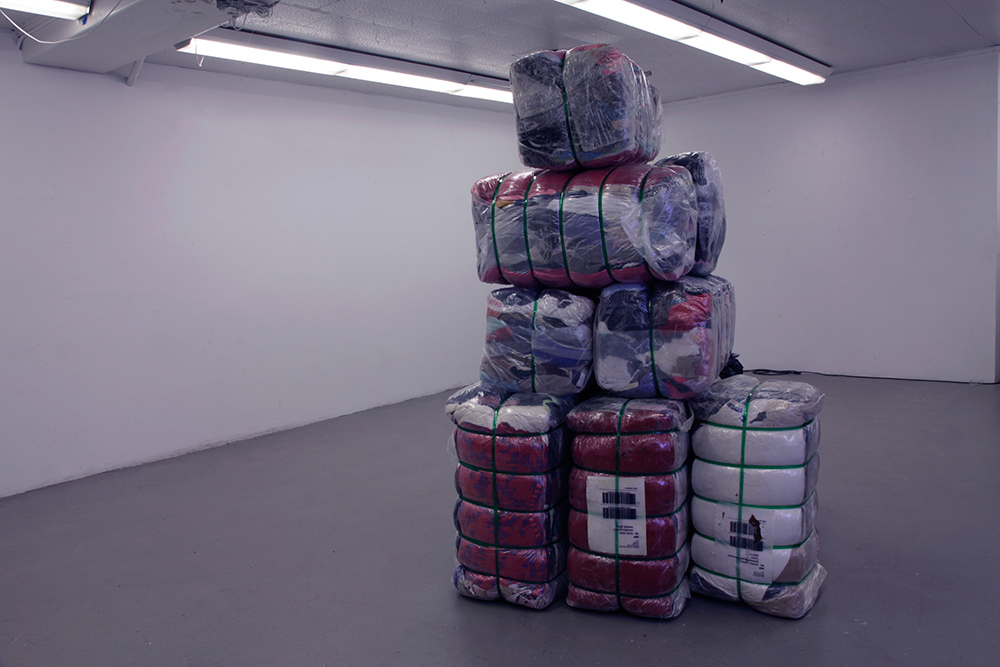
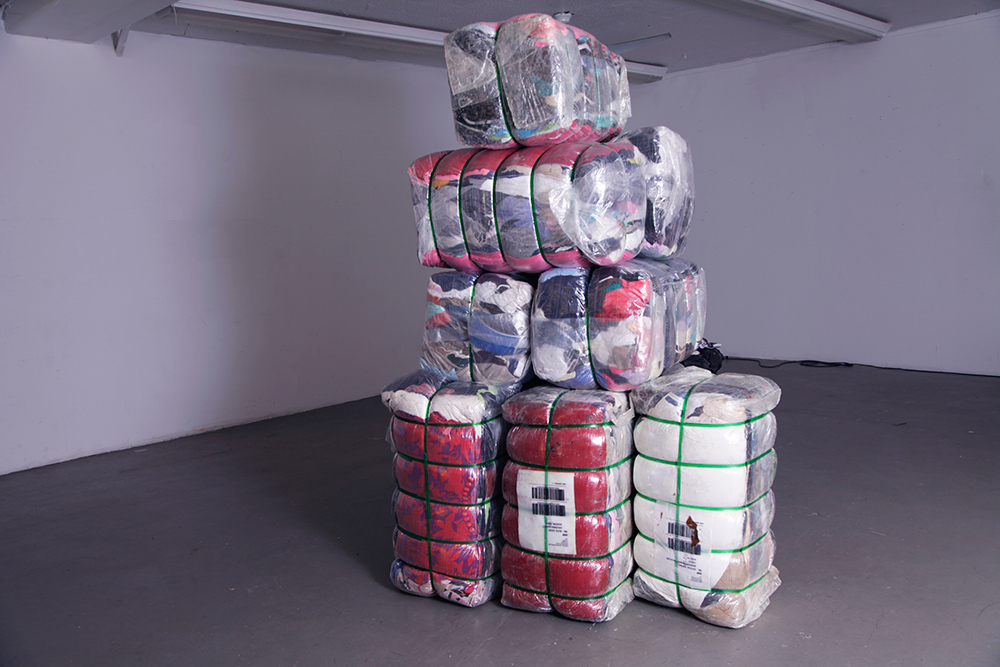
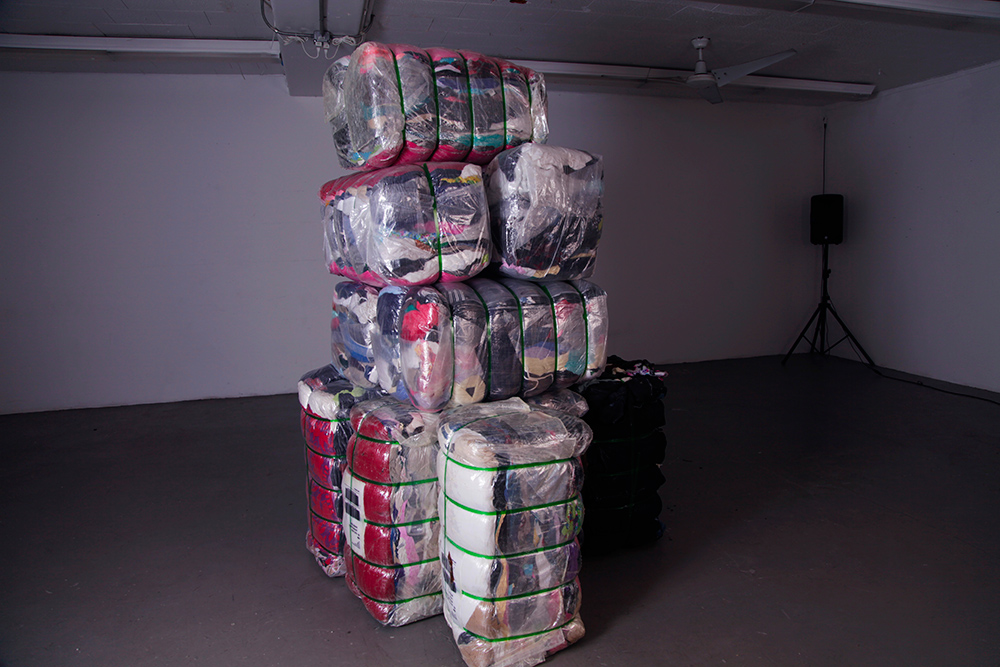
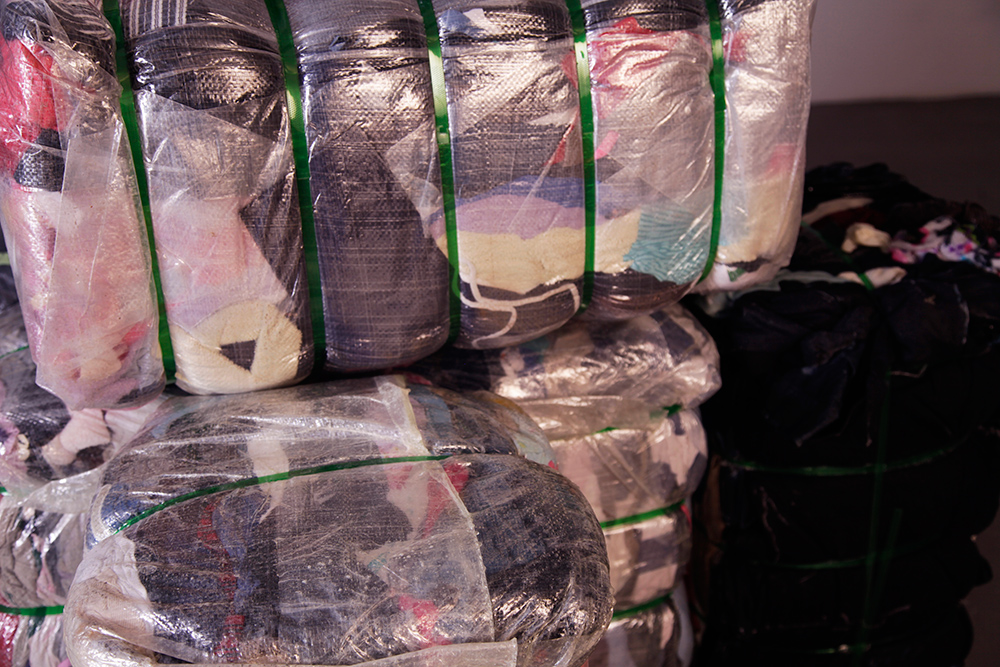
Tableau Vivant, Performance, 2016Fabricated from repurposed clothing, the dresses modeled in this performance reference the late nineteenth century royal court styles of the European nations that colonized Africa after the Berlin Conference of 1884-5. In an attempt to reclaim the gab in history, this dresses are worn by women of color, the costumes draw attention to the inconsistencies between the perceived backwardness of African cultures at the moment of colonization and the history of rich cultural tradition that was effaced by colonial encounter. More info ⇢ |
contact copyright and permissions |